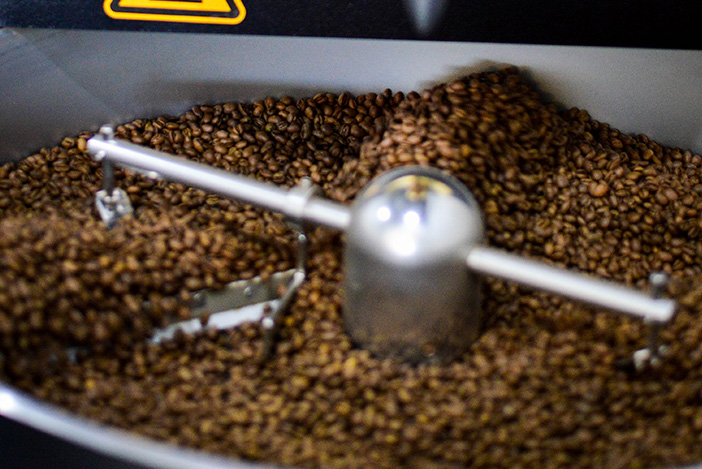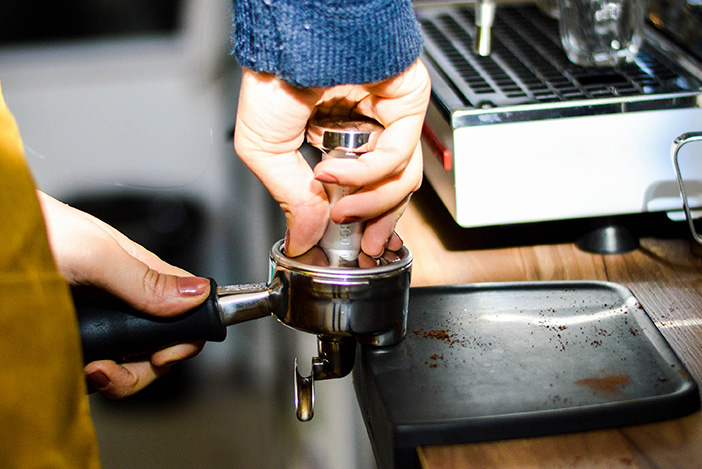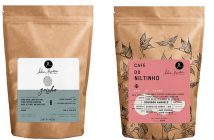Juliana Ganan was born and raised in Itajubá, south of Minas Gerais, where her family had a coffee farm. She left it at 18 years old to study agricultural engineering at UNICAMP, Campinas.
After the degree, she went to work at IBM as project manager and, after five years, she was transferred to Turkey, where the company conducted a social project. Once again, she wanted to change the scenery and went to the USA to attend to a Master Degree program in International Relations at NYU, where she defended a thesis on the theme Agricultural Policies turned to the Small and Medium Producer in Latin America.
Once this phase was concluded, she went to work at the Inter-American Development Bank, IDB, in Washington. And, though still very young, and with a desirable career, she dropped everything and came back to Brazil to work with special coffees.
“My father had a farm next to Três Corações, ranch Brasília, and our bread and butter has always been coffee. He even opened a roasting shop, Café Maneiro, to work with commodity coffee. When he passed away, my brothers and I opted for selling the property, since I was abroad, finishing my studies, and my brothers, lawyers, did not want to manage the farm”, tells Juliana.
“I have always liked coffee; when I was a kid, my mother mixed some coffee in my nursing bottle. But, ironically, I only reconnected myself with the drink when I was living in New York. There we used to drink a lot of coffee and, one day, I entered a coffee shop and saw a packaging of a micro lot of special coffee, with the producer photo, an old friend of my father, from Carmo de Minas. And I thought: why! How are these guys tracking this product and how can these producers from farms so close to ours produce such a good coffee? And why not us? The little seed was planted and I started to look for barista courses, roasting courses, everything I came across I attended. I was always going to cuppings to taste coffees from other countries”, she explained.
In between resigning from the job and coming back to Brazil, Juliana went to Europe for a sabbatical period. As many people, she followed the Route of Santiago de Compostela in order to find out what direction to go.
She attended a three-day individual workshop on roast with a Probat, at Five Elephant. She then went to Scandinavia to visit coffee shops. During her stay in Amsterdam she worked for free for 10 days in a roasting shop, Lot 61 Coffee Roasters. “I liked it but I noticed that coffee shop and roasting shop are two completely different businesses and I chose to dedicate exclusively to the second” she tells.
Back to Brazil, she created two blogs to tell her experience with special coffees – one on coffee shops, where she listed over 200 shops. The second was about special coffees movement in Brazil, with the same principle. “Foreign persons see us as producers rather than consumers of coffee”, reminds Juliana. She occasionally collaborates with Sprudge, one of the most influential portals worldwide. “I still write to them on subjects that are not related to Tocaya Torradores de Café”, she says.

Probat – Tocaya Torradores de Café
She decided to create Tocaya and that was only possible because she kept on working remotely to IDB. With her salary, she bought the required equipment, all high performance, like her Probat. She rented a property in Itajubá, close to her father’s old roasting shop. “I practically do everyday what he formerly used to do. Come here to toast coffee and then go back home, an activity that brings me many good memories”, she says.
After a short time of activity, several producers of the region started to seek Tocaya. The company is now in its 2nd year. “My idea is to always repeat the dose, work with the same producers. I offer them my feedback so that they can increasingly improve the quality of their special coffees. I’m very excited with the results of this new harvest”, she comments.
Today, Tocaya coffee works with three producers, Bayron Bastos, from Caparaó, Maurílio Borges, from São Gonçalo do Sapucaí and José Emílio Fazio. Juliana buys the micro lots, analyzes the coffees profiles and makes a handmade roasting, treating each one as a real gem. And, the most important: she seeks national buyers so that we can have the honor to taste our best coffees, going against history.

Tocaya Torradores de Café
And Juliana concludes: “Tocaya business model is the offer of special coffees, in the truest sense of the word: grown and harvested with care, processed with care and roasted with attention and heart”.
Would you like to visit Tocaya Torradores de Café?
Avenida Tancredo Neves, 341 – Itajubá – MG
Phone.: (5535) 3623.9172
tocaya.com.br
Photo Credit: Felipe Mohallem



